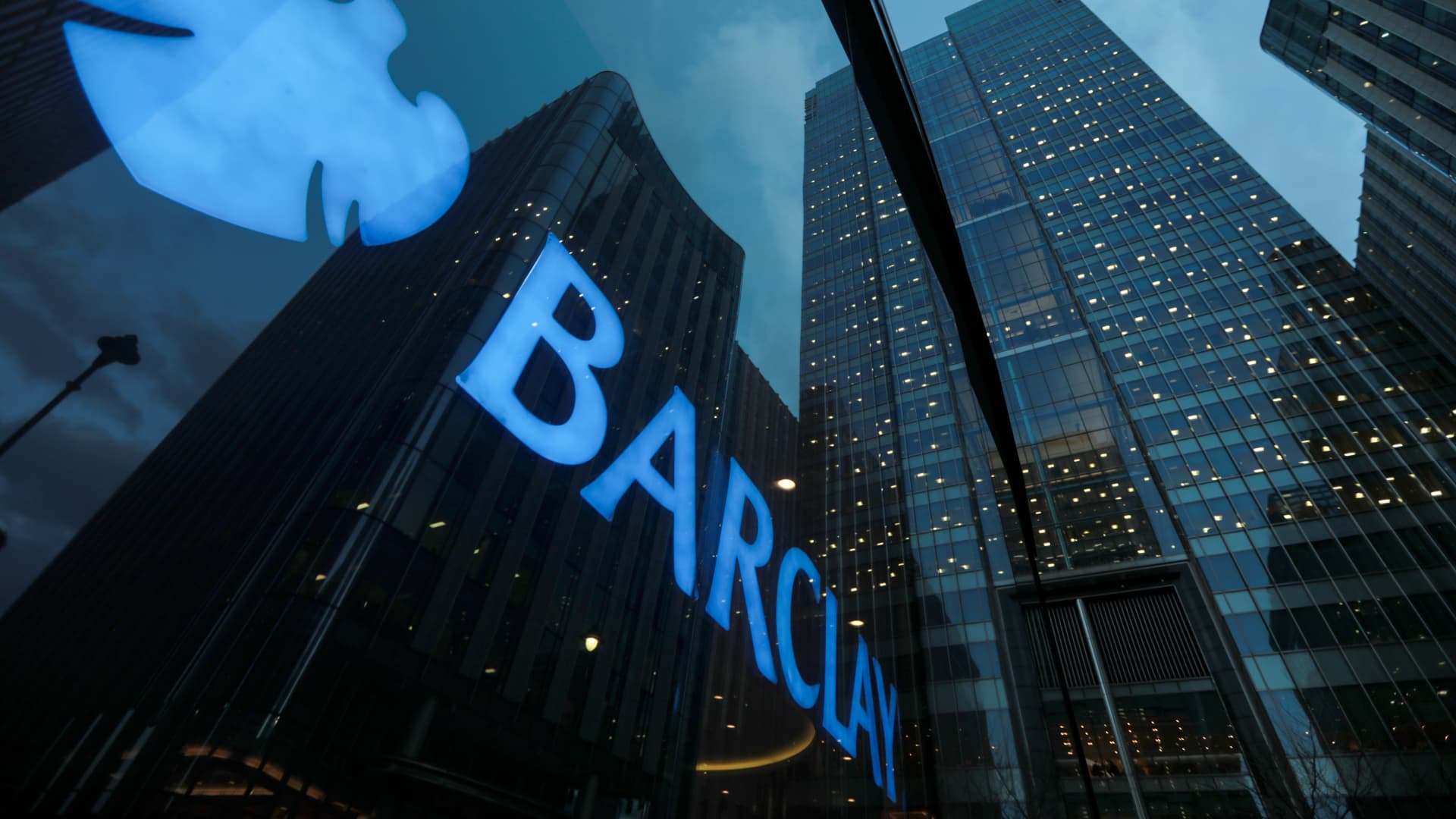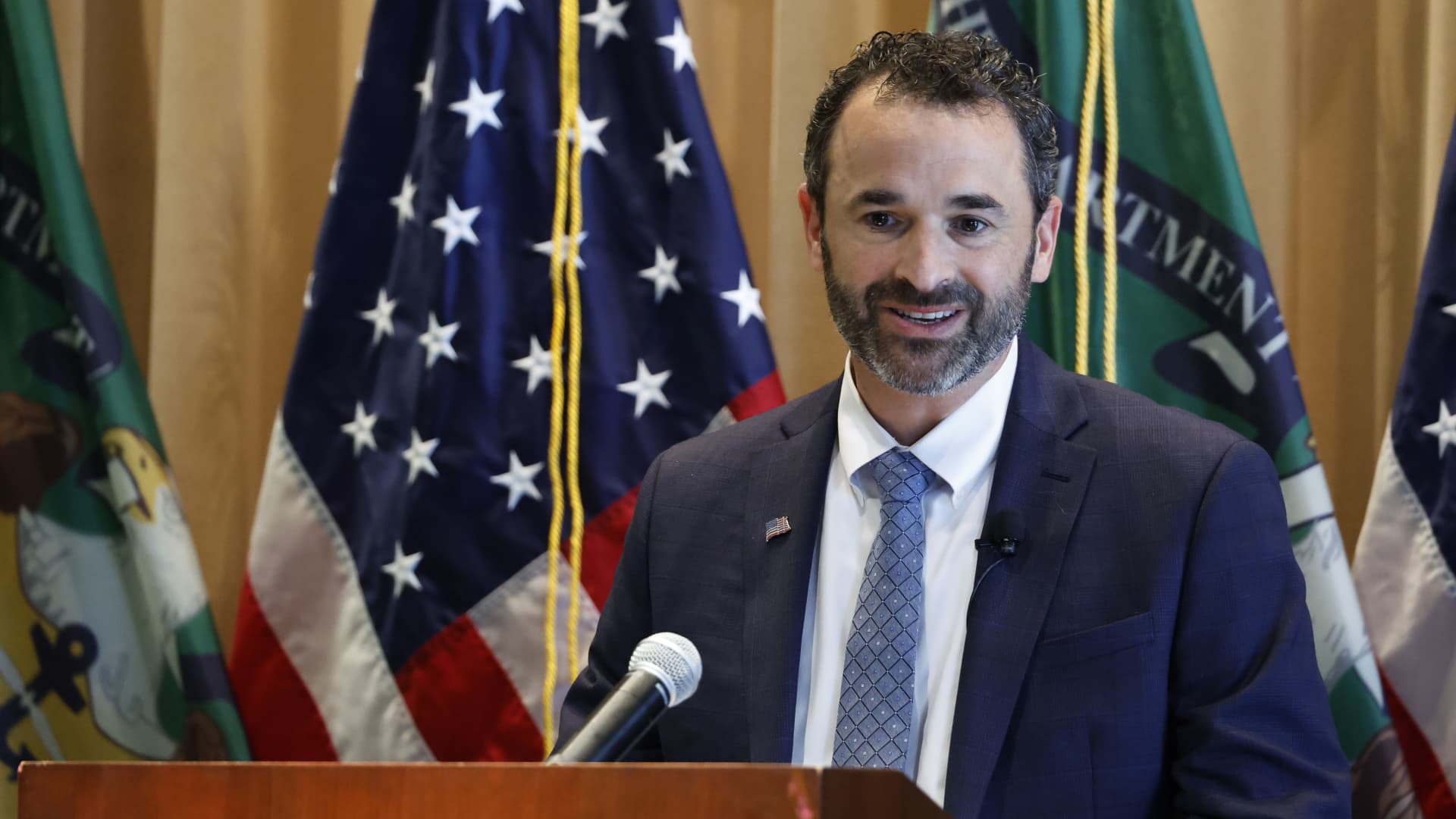China’s real growth agenda
China announced on Tuesday an official growth target of about 5 percent, which already appears difficult to achieve. The world’s second-largest economy faces headwinds ranging from a slowdown in consumer prices to weak investor confidence and a trade war with the West.
But the growth target only tells part of the story of how Beijing is rethinking economic policy.
Not mentioned in the announcements: an economic stimulus package. Investors are watching the annual meeting of the National People’s Congress, the country’s rubber-stamp parliament, and a parallel meeting of China’s top political body for clues on the government’s priorities. Spending is expected to remain around last year’s levels, suggesting no major rebound is in sight.
That’s not good news for Western brands, which have seen a sharp rise in Chinese consumer spending in recent years. Apple reportedly saw Chinese iPhone sales plummet this year.
The growth target also corresponds to that of the previous year, as the economy grew by 5.2 percent after the lockdown. (Some analysts say the real growth rate is much lower.) Global investors must accept that slow growth is the new norm. says Yu Jie, senior fellow for China at Chatham House, a think tank. “Beijing wants to draw a line under the previous economic model that focused on infrastructure and real estate,” she told DealBook.
Beijing’s real focus is on transforming the economy. The government knows it faces a number of challenges, but Chinese leader Xi Jinping is trying to move away from indebted sectors such as real estate and turn to strategic industries. The terms used are “high-quality development” and “new productive forces,” including electric vehicles, climate technology, life sciences and artificial intelligence. The latest measures to achieve that: Premier Li Qiang, China’s second-highest official, said on Tuesday that the government would increase spending on science and technology research by 10 percent.
More government investment is a priority instead of “other types of more politically painful reforms,” George Magnus, a research fellow at the University of Oxford’s China Center and former chief economist at UBS, told DealBook.
It could also mean greater pressure on private companies to toe the party line, with even bankers being told to be more patriotic and develop a “financial culture with Chinese characteristics.”
Here’s what’s happening
Donald Trump is expected to win big in Super Tuesday contests. Voters in 15 states, including California and Texas, are heading to the polls. A stunning Trump victory in the Republican primary could force Nikki Haley out. Elsewhere, outspoken billionaire Mark Cuban backed President Biden in the general election, and supporters of the third-party initiative No Labels fear the group is no longer politically viable.
The White House takes on “corporate fraud.” The Biden administration said Tuesday it is forming a “strike force” to coordinate federal efforts to combat “unfair and illegal pricing.” It’s part of Biden’s effort to shift some of the blame on rising prices – a voter concern that has weighed on him politically – onto greedy companies, a theme sure to come up again during his State of the Union address on Thursday.
Nelson Peltz releases his full case against Disney. The activist investor shared his white paper outlining his recommendations for reorganizing the media giant; That includes finding a partner for Disney’s TV assets and scrapping plans to launch a new ESPN streaming service that would replace ESPN+. Peltz’s 133-page dossier comes less than a month before Disney shareholders vote on whether to give him control of two board seats.
How hard will the new EU law hit Apple?
European antitrust regulators have finally prevailed against Apple, fining the iPhone maker $2 billion for trying to stifle competition in music streaming. A bigger test of the EU’s ability to rein in tech giants is yet to come.
The Digital Markets Act, which aims to ensure competition between popular digital platforms, comes into force on Thursday. But skeptics believe tech giants like Apple will find ways to avoid a squeeze.
The DMA represents an aggressive attempt to control digital competition. Monday’s fine related to the narrow problem that Apple wants to slow down competitors like Spotify in music streaming. The new law is intended to prevent “gatekeepers” of large platforms – including Amazon, Apple, Google and Meta – from using their market power to exclude new market participants.
The cost of non-compliance is high: DMA offenders could be forced to pay up to 10 percent of their global sales, and up to 20 percent for repeat violations.
Apple says it will follow the law Offering multiple options for app developers could supposedly reduce their fees. Some include paying Apple a per-download fee once their apps reach one million downloads per year.
But critics say Apple tried to circumvent the new rules. In the Netherlands and South Korea, which both passed laws requiring app store owners to allow alternative payment systems, the iPhone maker agreed to open its app store. But it began charging a 26 percent commission from those who use non-Apple payment methods, a move the Korean government says undermines its law.
In a letter to the European Commission published last week, three dozen companies argued that Apple was taking a similar approach to the DMA. “Apple has a history of skirting these rules,” Spotify co-founder and CEO Daniel Ek said after the EU fine was announced on Monday. “It will continue to behave the way it has done so far.”
Apple has the resources to fight. The company said it plans to appeal Monday’s ruling and may challenge the allegations made under the DMA. It’s worth noting that the tech giant is still fighting other government penalties, including a €13 billion tax ruling issued by the European Commission in 2016.
The fight over the SEC’s new climate mandate
The SEC will vote tomorrow on a new rule that would require companies to disclose the climate risks of their businesses – a key part of the Biden administration’s green agenda.
When the proposal was unveiled two years ago, SEC Chairman Gary Gensler said it would help protect “tens of trillions of dollars” of investor money. But climate experts and former SEC commissioners believe the measure was weakened due to intense corporate lobbying and broader conservative opposition to the authorities’ power.
The rule should help investors assess climate risks. Money flowing into companies that prioritize environmental, social and governance principles has been booming in recent years and is a huge profit driver for Wall Street. But ESG investors have started pulling back recently amid concerns about greenwashing, red state boycotts and regulatory uncertainty.
Some worry that muted SEC rules could reduce transparency. Another problem: California and Europe have strict disclosure rules, so large companies may have to navigate a tangle of regulations.
What is likely to be gone? The most controversial aspect that has reportedly been removed concerns the so-called Scope 3 discharges, which would apply to the majority of a company’s emissions. However, measuring Scope 3 requires a costly investigation of the entire value chain from supplier to customer.
Scope 3 is a “critically important issue for investors” and critical to preventing greenwashing, Allison Herren Lee, the former acting chairwoman of the SEC, told DealBook. (In 2021, she pushed for this requirement.)
What’s in it? Scope 1 and Scope 2 emissions, which measure a company’s direct carbon footprint, will be part of the new rules, but only if they are considered “significant”. This qualification gives companies a certain amount of leeway.
“If the SEC ultimately leaves climate disclosure decisions up to corporate executives, it is a political decision with an unfortunate history,” said Satyam Khanna, a former SEC climate adviser.
Even watered down rules could trigger a legal dispute. Business groups have repeatedly challenged the Biden administration’s environmental agenda in court.
The SEC will be sued “as surely as the sun rises in the east,” said Joseph Grundfest, a Stanford Law School professor and former SEC commissioner.
“This will go to zero faster than my portfolio when my Wendy’s paycheck arrives.”
– 96Phoenix, a member of the online community WallStreetBets, on Reddit’s IPO plans. Reddit relies on the enthusiasm of its users, but some instead express reservations.
Musk’s legal cases are piling up
More than a year after Elon Musk completed his $44 billion acquisition of Twitter (now X), the challenges — and lawsuits — are piling up.
Musk, who filed his own blockbuster lawsuit against OpenAI last week, has previously faced a mountain of legal trouble. But these distractions come at a particularly difficult time for the billionaire. Musk is struggling with an investor exodus at Tesla, his electric vehicle maker, and the banks that loaned him billions to buy Twitter two years ago have reportedly met with him to discuss refinancing terms.
Former Twitter executives are the new ones joining in. One of Musk’s first official acts after buying the company was to fire him Parag Agrawal, its CEO; Ned Segal, the CFO; Vijaya Gadde, the legal and policy chief; and Sean Edgett, the general counsel. They sued Musk on Monday for $128 million, accusing him of withholding severance payments and depriving them of unvested stock awards when he took the company private in October 2022.
Musk believes he fired her “for cause.” The lawsuit quotes Musk telling biographer Walter Isaacson that he would “hunt” the executives “until they die.”
“This is Musk’s playbook: keep the money he owes others and force them to sue him,” the executives’ lawyers wrote. “Even in the event of defeat, Musk may impose delays, hassle and expense on others who can less afford it.”
The case puts Musk’s numerous lawsuits back in the spotlight. Here are a few more:
THE SPEED READING
Offers
politics
The best of the rest
We appreciate your feedback! Please email your thoughts and suggestions to dealbook@nytimes.com.
Source link
2024-03-05 13:34:11
www.nytimes.com















